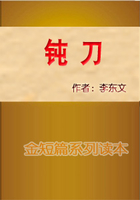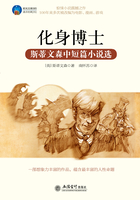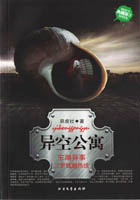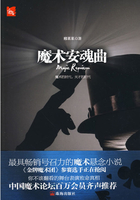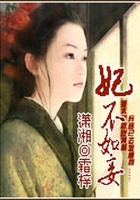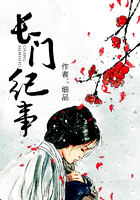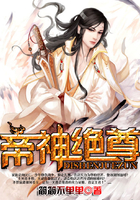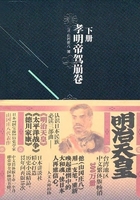“They must have taken a quarter of him and of the best meat,” he said aloud. “I wish it were a dream and that I had never hooked him. I’m sorry about it, fish. It makes everything wrong.” He stopped and he did not want to look at the fish now. Drained of blood and awash he looked the colour of the silver backing of a minor and his stripes still showed.
“I shouldn’t have gone out so far, fish,” he said. “Neither for you nor for me. I’m sorry, fish.”
Now, he said to himself. Look to the lashing on the knife and see if it has been cut. Then get your hand in order because there still is more to come.
“I wish I had a stone for the knife,” the old man said after he had checked the lashing on the oar butt. “I should have brought a stone.” You should have brought many things, he thought. But you did not bring them, old man. Now is no time to think of what you do not have. Think of what you can do with what there is.
“You give me much good counsel,” he said aloud. “I’m tired of it.”
He held the tiller under his arm and soaked both his hands in the water as the skiff drove forward.
“God knows how much that last one took,” he said.
“But she’s much lighter now.” He did not want to think of the mutilated under-side of the fish. He knew that each of the jerking bumps of the shark had been meat torn away and that the fish now made a trail for all sharks as wide as a highway through the sea.
He was a fish to keep a man all winter, he thought Don’t think of that. Just rest and try to get your hands in shape to defend what is left of him. The blood smell from my hands means nothing now with all that scent in the water. Besides they do not bleed much. There is nothing cut that means anything. The bleeding may keep the left from cramping.
What can I think of now? he thought. Nothing. I must think of nothing and wait for the next ones. I wish it had really been a dream, he thought. But who knows? It might have turned out well.
The next shark that came was a single shovelnose. He came like a pig to the trough if a pig had a mouth so wide that you could put your head in it. The old man let him hit the fish and then drove the knife on the oar don into his brain. But the shark jerked backwards as he rolled and the knife blade snapped.
The old man settled himself to steer. He did not even watch the big shark sinking slowly in the water, showing first life-size, then small, then tiny. That always fascinated the old man. But he did not even watch it now.
“I have the gaff now,” he said. “But it will do no good. I have the two oars and the tiller and the short club.”
Now they have beaten me, he thought. I am too old to club sharks to death. But I will try it as long as I have the oars and the short club and the tiller.
He put his hands in the water again to soak them. It was getting late in the afternoon and he saw nothing but the sea and the sky. There was more wind in the sky than there had been, and soon he hoped that he would see land.
“You’re tired, old man,” he said. “You’re tired inside.”
The sharks did not hit him again until just before sunset.
The old man saw the brown fins coming along the wide trail the fish must make in the water. They were not even quartering on the scent. They were headed straight for the skiff swimming side by side.
He jammed the tiller, made the sheet fast and reached under the stem for the club. It was an oar handle from a broken oar sawed off to about two and a half feet in length. He could only use it effectively with one hand because of the grip of the handle and he took good hold of it with his right hand, flexing his hand on it, as he watched the sharks come. They were both galanos.
I must let the first one get a good hold and hit him on the point of the nose or straight across the top of the head, he thought.
The two sharks closed together and as he saw the one nearest him open his jaws and sink them into the silver side of the fish, he raised the club high and brought it down heavy and slamming onto the top of the shark’s broad head. He felt the rubbery solidity as the club came down. But he felt the rigidity of bone too and he struck the shark once more hard across the point of the nose as he slid down from the fish.
The other shark had been in and out and now came in again with his jaws wide. The old man could see pieces of the meat of the fish spilling white from the corner of his jaws as he bumped the fish and closed his jaws. He swung at him and hit only the head and the shark looked at him and wrenched the meat loose. The old man swung the club down on him again as he slipped away to swallow and hit only the heavy solid rubberiness.
“Come on, galano,” the old man said. “Come in again.”
The shark came in a rush and the old man hit him as he shut his jaws. He hit him solidly and from as high up as he could raise the club. This time he felt the bone at the base of the brain and he hit him again in the same place while the shark tore the meat loose sluggishly and slid down from the fish.
The old man watched for him to come again but neither shark showed. Then he saw one on the surface swimming in circles. He did not see the fin of the other.
I could not expect to kill them, he thought. I could have in my time. But I have hurt them both badly and neither one can feel very good. If I could have used a bat with two hands I could have killed the first one surely. Even now, he thought.
He did not want to look at the fish. He knew that half of him had been destroyed. The sun had gone down while he had been in the fight with the sharks.
“It will be dark soon,” he said. “Then I should see the glow of Havana. If I am too far to the eastward I will see the lights of one of the new beaches.”
I cannot be too far out now, he thought. I hope no one has been too worried. There is only the boy to worry, of course. But I am sure he would have confidence. Many of the older fishermen will worry. Many others too, he thought. I live in a good town.
He could not talk to the fish anymore because the fish had been ruined too badly. Then something came into his head.


